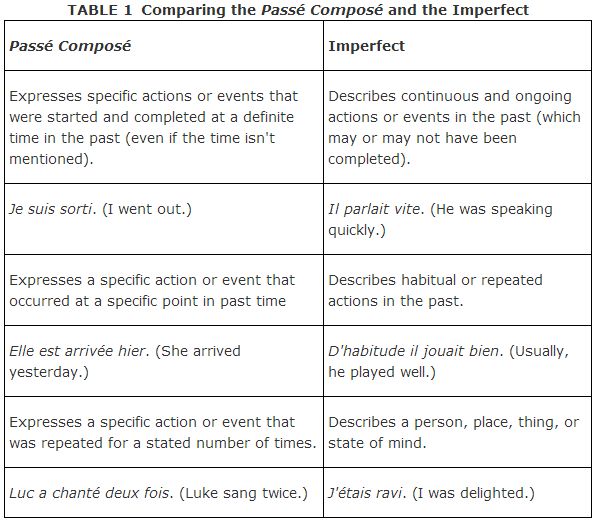Imperfect Versus Passé Composé
The passé composé expresses a completed action that occurred at a specific time in the past. This action happened at one moment in time and could have been captured by the click of an instamatic camera.
With that in mind, the following words, phrases, and expressions often require the use of the passé composé because they specify a definite past time:
The imperfect, on the other hand, expresses an action that continued in the past over an indefinite, undetermined period of time and could have been captured by a video camera. The imperfect also describes what was going on in the past when another action or event took place in the passé composé: Il sortait quand je suis arriv(é) (He was going out when I arrived.)
When “would” means “used to,” use the imperfect: Quand j'étais jeune je lisais beaucoup. (When I was young, I would read a lot.)
The following expressions generally imply repetitious or habitual past actions and, therefore, require the imperfect:
- chaque jour (semaine, mois, année) (each [every] day, week, month, year)
- de temps à autre (from time to time)
- de temps en temps (from time to time)
- d'ordinaire (usually, generally)
- en ce temps‐là (at that time)
- habituellement (habitually)
- tous les jours (mois) (every day, month)
- tout le temps (all the time)
Verbs that indicate a state of mind in the past are generally used in the imperfect.
- regretter (to regret, be sorry)
When, however, the state of mind occurred at a specific time in the past, the passé composé is used:
- Je ne pouvais pas l'aider. (I couldn't help him.)
- Je n'ai pas pu l'aider hier. (I couldn't help him yesterday.)
Differences in the use of the passé composé and the imperfect are summarized in Table 1.
